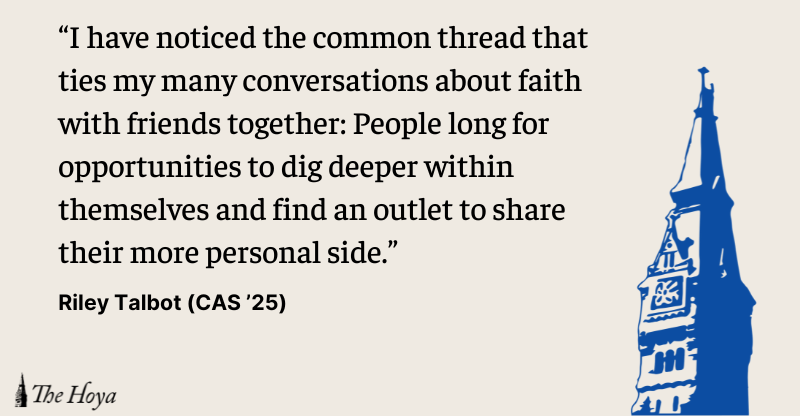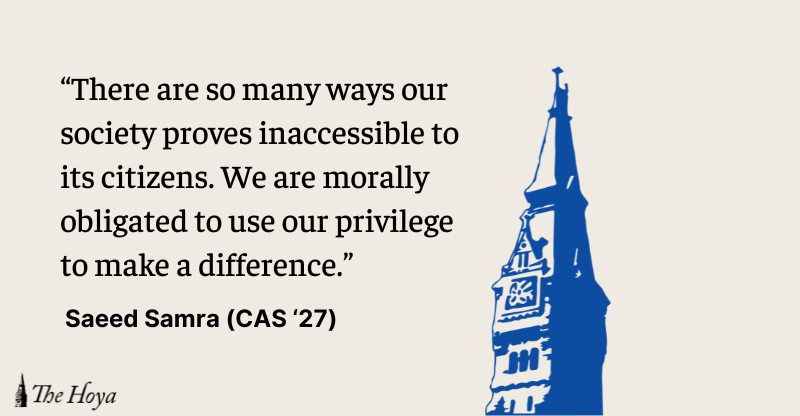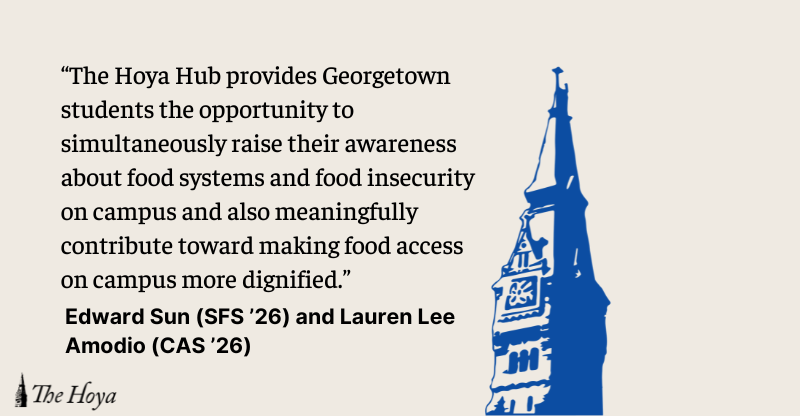A little collaboration can go a long way.
Earlier this month, the Georgetown University board of directors approved Georgetown’s first Socially Responsible Investing Policy. The policy was formulated over the last year with continuous feedback from GU Fossil Free. Though this policy is not perfect, it is a step in the right direction. Moreover, this process is a testament to the importance of collaboration – and especially, of student input – in university policy.
There is still more work to do. The policy must now be implemented. It will be incumbent upon student groups to hold the board of directors and the university administration accountable for putting the policy in place in a timely fashion — another reminder that collaboration between students, the board and administration will be integral to the continued development of the SRI Policy.
That we even reached this point is somewhat surprising. Just 14 months ago, my GUFF colleague Theo Montgomery (SFS ’18) wrote an op-ed for The Hoya entitled “Bringing the Board to Students’ Level.” In it, Montgomery expressed concern about the lack of transparency in the board’s decision-making process, as well as its disinterest in engaging students.
To make it known that students cared about socially responsible investments, GU Fossil Free organized a rally in April 2016 called “Follow the Money” with nine other student groups dedicated to a variety of different causes. We marched from Red Square to the Office of the President with a list of 20 demands for the SRI Working Group.
That public insistence worked wonders. After a delay of over nine months, the working group finally met for the first time in March of 2016.
From the very beginning, GUFF worked to make sure student perspectives were heard. Board members — particularly Paul Tagliabue (CAS ’62), the board’s vice chair and the leader of the working group — were eager to learn about the issues that motivated the student body. The core themes embedded in the mission statement, including “social justice,” “stewardship for the planet,” “protection of human life and dignity” and “promotion of the common good,” all came from a statement written by members of GUFF with input from other student leaders.
GUFF members also did extensive research on how other universities and colleges have handled SRI. That research influenced the determination of which sectors the university will strive to avoid, including companies involved in widespread violations of human dignity and those that have an extremely deleterious effect on the environment. It also encouraged the board’s pledge to engage in a public campaign when necessary “to promote the University’s principles and values”; this commitment will allow the university to lead the way when students or faculty raise controversial questions concerning the SRI.
Meeting with the SRI working group not only offered GUFF a chance to voice concerns specific to our divestment campaign, but also allowed us to raise the concerns of other student groups, such as those from Georgetown Against Gun Violence, Georgetown Students for Justice in Palestine, Georgetown Solidarity Committee and Georgetown Israel Alliance. Concerns raised to GUFF members by these groups was one factor that led to the policy’s language concerning “not promoting a political agenda” and avoiding investments in “weapons that are intended to be used for indiscriminate destruction”; additionally, the entire section on “impact investments” — the board’s consideration of investments that “generate a positive social impact” — also partially resulted from issues raised by student groups.
But despite the progress made toward a more collaborative relationship between student groups and the university, challenges remain to successfully implementing the SRI Policy. Accountability is particularly difficult due to the lack of commitment to full transparency in the SRI Policy. In discussions with students, we have found that most believe they have a right to know how their money is being invested. Without transparency, there is less opportunity for dialogue about specific issues and whether our investments align with our Jesuit values. For these reasons, GUFF will continue encouraging the board and the administration to make university investing decisions more transparent.
GUFF will also not stop pushing for bold action to address our climate crisis. With President Donald Trump pulling the United States out of the landmark Paris Climate Agreement, it is more important than ever for institutions like Georgetown to distance our endowment from companies that extract fossil fuels and contribute heavily to the burning of greenhouse gases, thus jeopardizing our future.
Nonetheless, for the first time in the university’s history, a socially responsible investing framework is in place — and this framework did not come to pass because board members met in a back room to work out the details. Students, faculty, administrators and board members came together to create something that will make Georgetown an institutional leader in social responsibility. In the end, collaboration won out.
Grady Willard is a senior in the School of Foreign Service. Samantha Panchèvre is a junior in the School of Foreign Service.



















